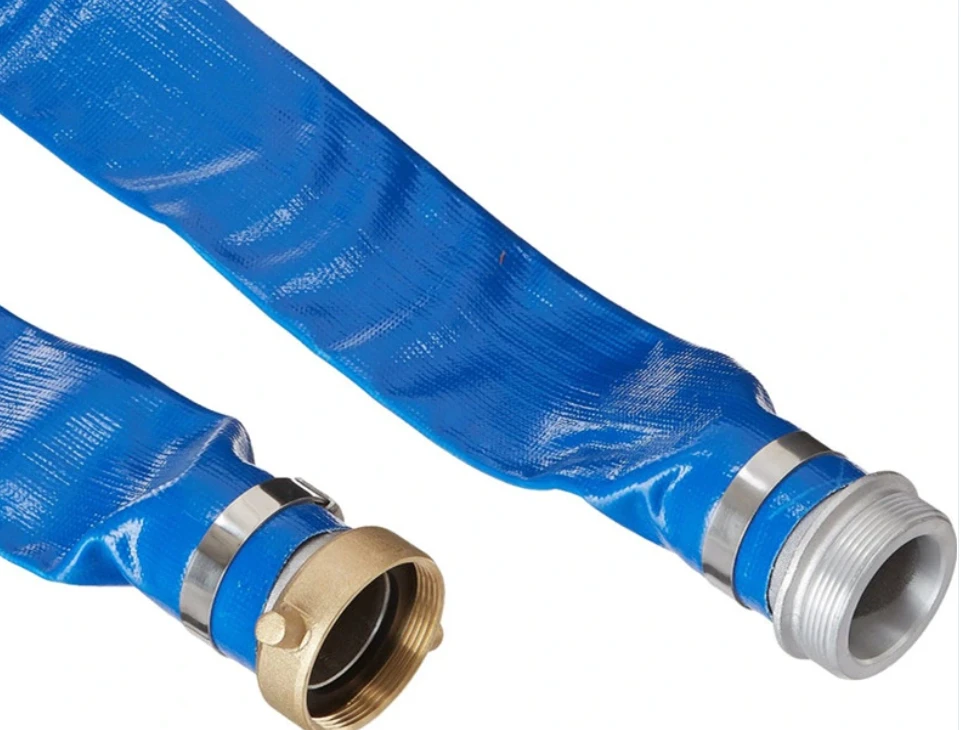pvc flexible hose
The Versatility and Utility of PVC Flexible Hoses
PVC (Polyvinyl Chloride) flexible hoses are an essential component in various industries due to their durability, flexibility, and resistance to a wide range of chemical substances. From agriculture to construction, PVC hoses are versatile tools that cater to numerous applications, making them a preferred choice for both industrial and domestic use.
Composition and Characteristics
The primary material used in the manufacture of PVC flexible hoses is polyvinyl chloride, a synthetic plastic polymer. This material is renowned for its strong resistance to water, chemicals, and UV light, which enhances the longevity and functionality of the hoses in outdoor and indoor environments. The flexibility of PVC allows it to be easily maneuvered into tight spaces, making it ideal for applications where rigid piping would be impractical.
Additionally, PVC hoses often come in various diameters and lengths, allowing users to choose the right size for their specific needs. The transparent nature of many PVC hoses enables users to monitor the flow of liquids, detect blockages, or inspect the hose interior without needing to disassemble any components.
Applications
One of the most common applications of PVC flexible hoses is in the agricultural sector. These hoses are used for irrigation systems, allowing farmers to efficiently transport water to their crops. The hose's flexibility means it can adapt to various terrains and setups, ensuring efficient water delivery. Its resistance to chemicals also means it can be used to distribute fertilizers and other solutions that may harm other types of hoses.
In construction, PVC flexible hoses are utilized for transporting air, water, and other materials. Their lightweight nature makes them easy to handle, while their durability can withstand the rigors of construction sites. These hoses are commonly used in dust suppression systems and dewatering applications, effectively managing water levels and debris.
pvc flexible hose

Moreover, in home settings, PVC hoses are widely used for gardening, pool maintenance, and general-purpose water transfer. Gardeners appreciate the ease of use and flexibility when watering plants, while pool owners rely on these hoses for vacuuming and maintenance tasks. Home improvement enthusiasts also find PVC hoses useful for various DIY projects.
Advantages Over Other Materials
Compared to rubber or metal hoses, PVC flexible hoses offer several advantages. Firstly, they are lighter in weight, making them easier to transport and handle. Secondly, PVC hoses are generally more cost-effective than their rubber or metal counterparts, reducing the overall project costs. Their chemical-resistant properties also make them suitable for a broader range of applications, as they are less likely to degrade when exposed to harsh substances.
Additionally, the maintenance requirements for PVC hoses are minimal. They can be cleaned easily with soap and water, and their resistance to mold and mildew means they can be stored without worries of degradation.
Conclusion
The utility of PVC flexible hoses makes them an indispensable tool in various fields. Their robust characteristics of flexibility, durability, and resistance to environmental elements allow them to thrive in both industrial and domestic applications. As technology continues to evolve, the manufacturing processes for these hoses improve, leading to even better performance and longevity.
As industries seek solutions that are both effective and economical, PVC flexible hoses will undoubtedly remain a preferred choice. Their adaptability ensures that they will continue to play a crucial role in modern applications, providing efficient transport solutions that cater to a wide range of needs. Whether used for simple gardening tasks or complex industrial applications, PVC flexible hoses exemplify functionality and reliability in fluid transportation.
-
Unrivaled Performance and Applications of PU Pneumatic Hoses and TubesNewsJun.11,2025
-
The Transparent World of Industrial Tubing and Hosing SolutionsNewsJun.11,2025
-
The Intricate World of Pneumatic Conduits: Tubes and HosesNewsJun.11,2025
-
The Dynamic Landscape of Pneumatic Conduits: Unraveling Key ComponentsNewsJun.11,2025
-
The Diverse Applications and Significance of Transparent PVC TubingNewsJun.11,2025
-
High - Pressure Pneumatic Tubing and Systems: An In - Depth LookNewsJun.11,2025














